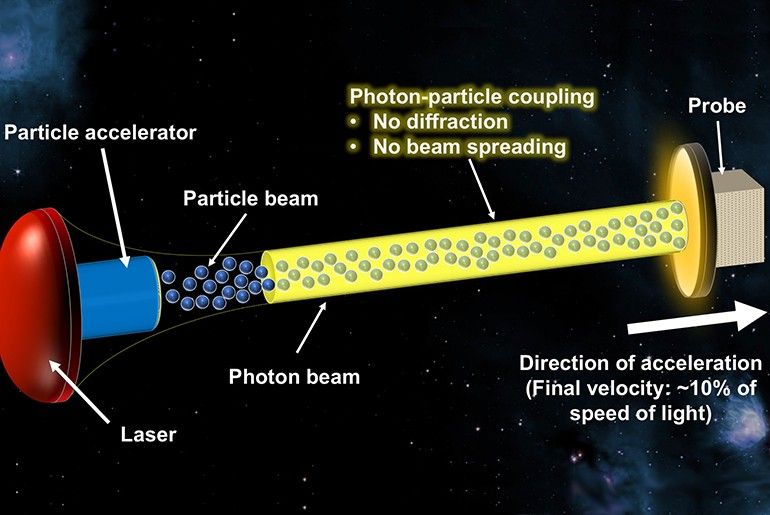By jan mcharg, texas A&M university college of engineering
A new technology combining a laser beam and a particle beam for interstellar propulsion could pave the way for space exploration into the vast corners of our universe. This is the focus of PROCSIMA, a new research proposal by Dr. Chris Limbach and Dr. Ken Hara, assistant professors in the Department of Aerospace Engineering at Texas A&M University.
NASA has chosen the proposal “PROCSIMA: Diffractionless Beam Propulsion for Breakthrough Interstellar Missions,” for the 2018 NASA Innovative Advanced Concepts (NIAC) phase 1 study. PROCSIMA stands for Photon-paRticle Optically Coupled Soliton Interstellar Mission Accelerator, and is meant to evoke the idea that interstellar travel is not so far away.
